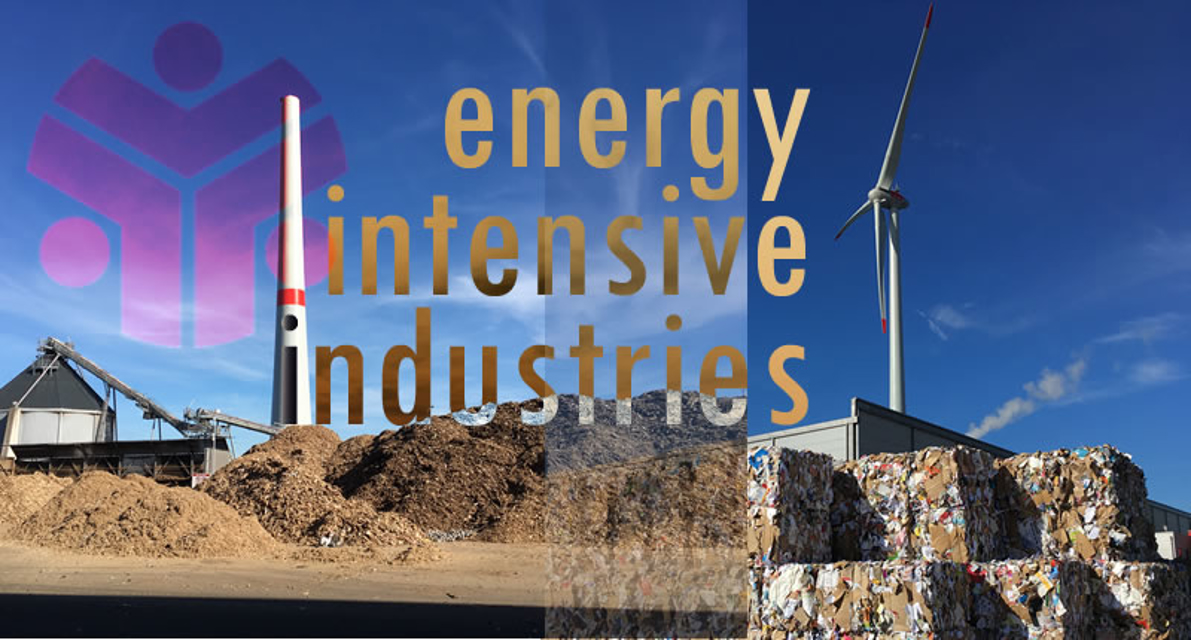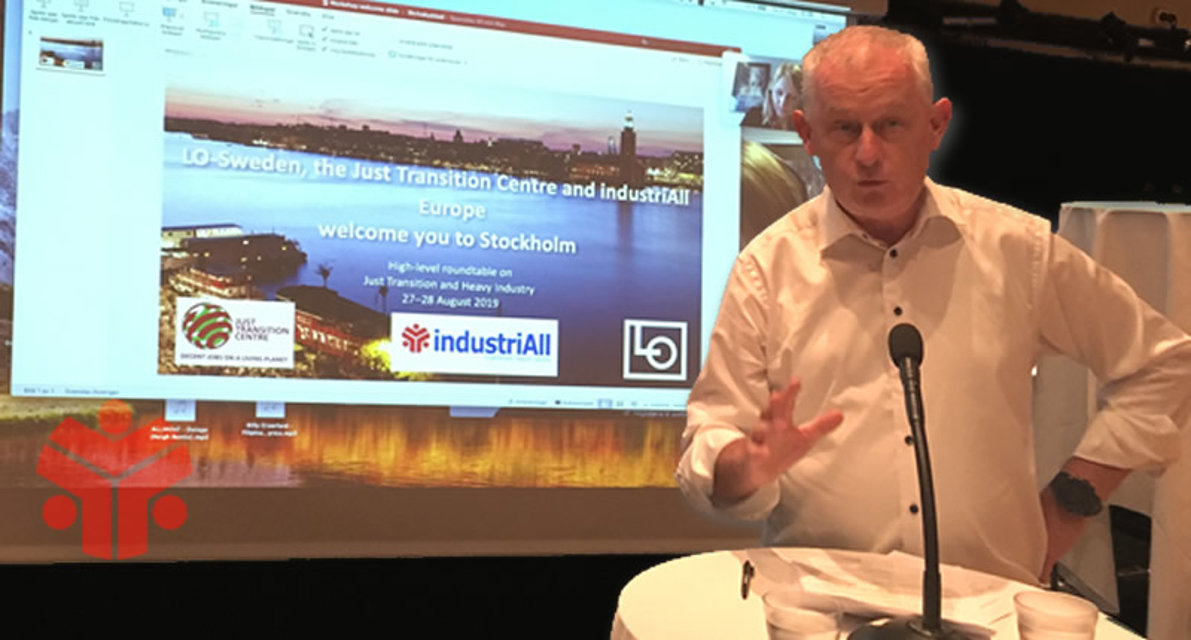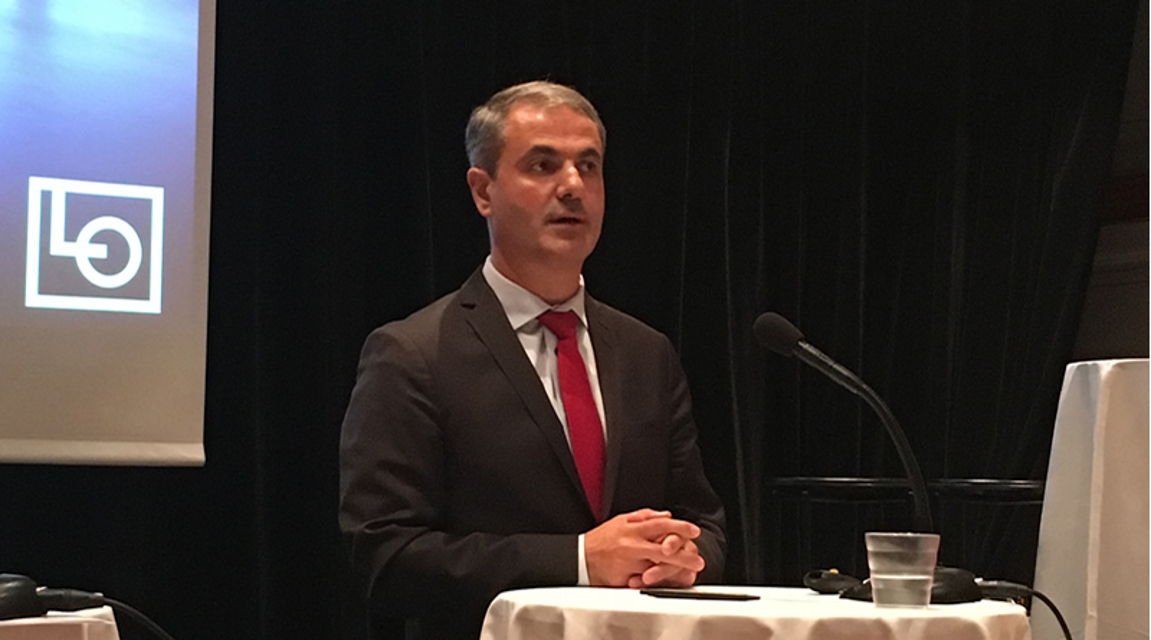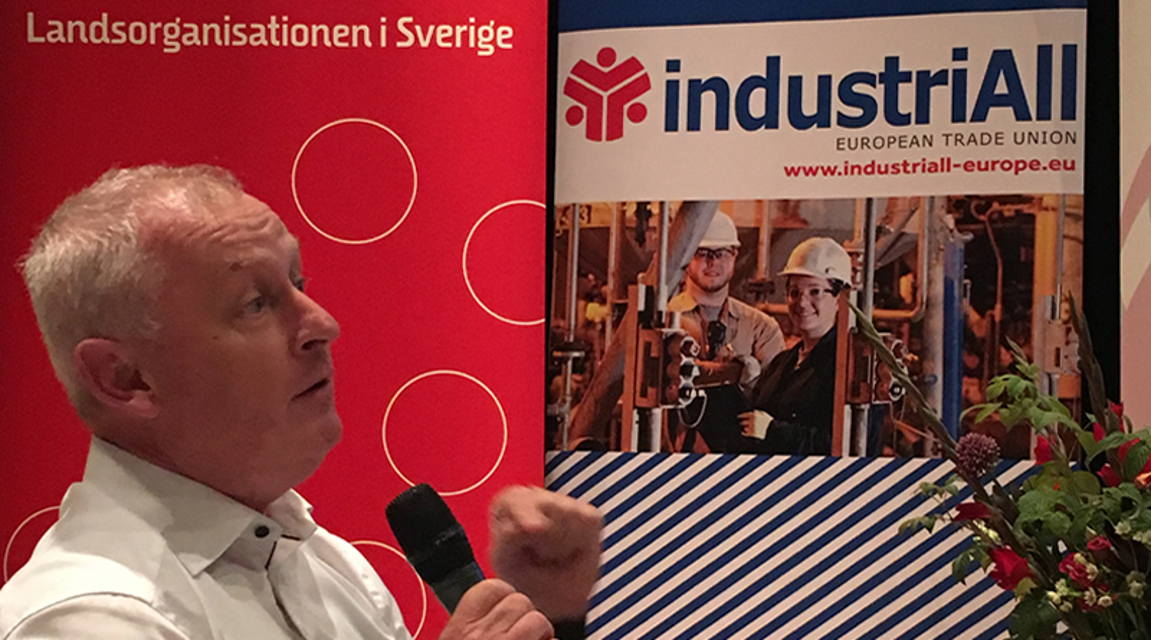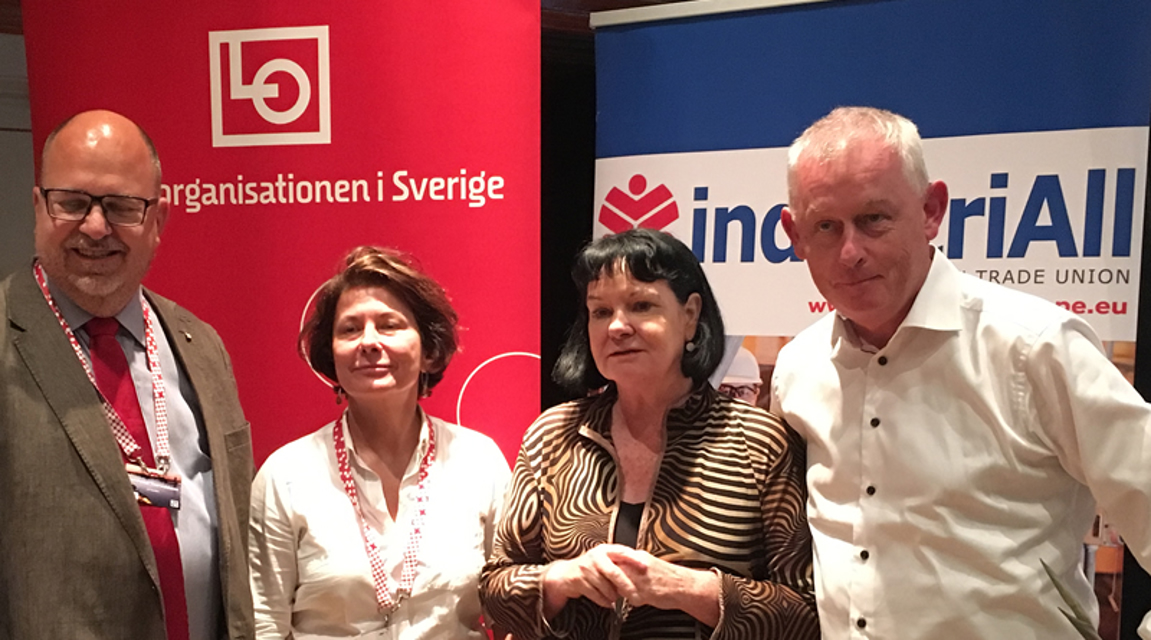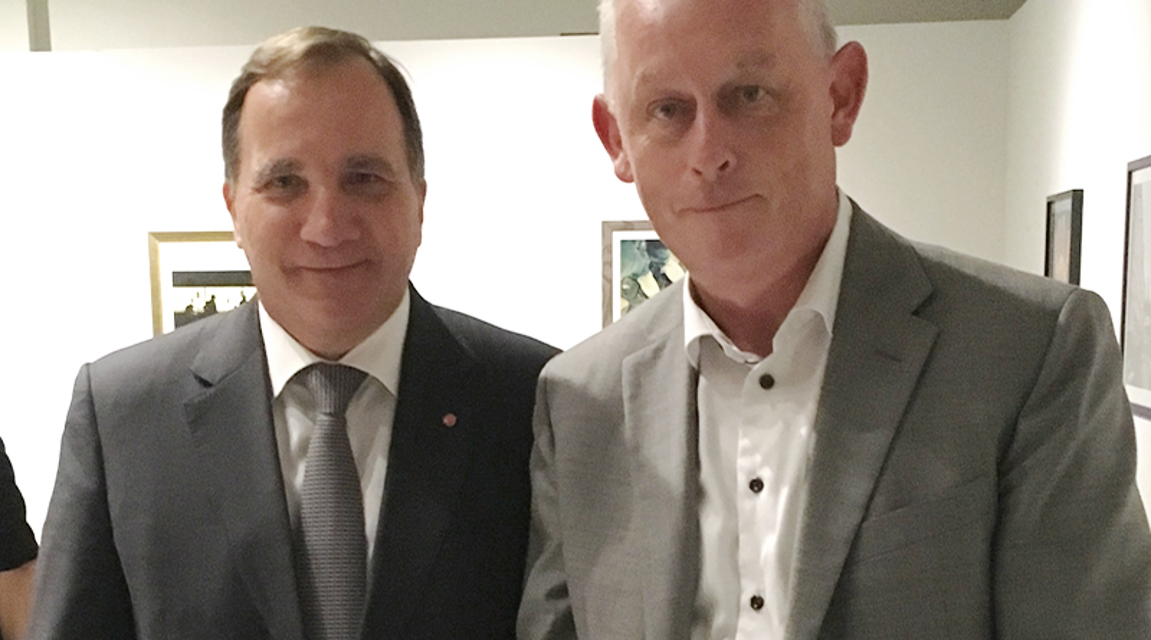Social Coherence and Social Acceptance should be guaranteed all along the journey towards a net-zero industry
These were the key messages shared by industriAll when discussing the deep decarbonisation of heavy industry with other trade unions from across the globe in a Roundtable co-organised by the Just Transition Center, ITUC, LO Sweden and industriAll Europe in Stockholm on 27 and 28 August.
Speakers included Matilda Axelsson from the VUB who presented the conclusions of two reports – Industrial Value Chain and Industrial Transformation 2050 – that have been widely debated by stakeholders in Brussels and Faustine Delasalle from the Energy Transition Commission who presented its Mission Possible report. The reports give valuable input to the public debate around deep decarbonisation and how it can be achieved and were the basis for two days of discussions with trade unions, but also representatives from the steel and cement industry that were chosen as reference sectors for the debate. However, while the reports draw a very comprehensive picture of technological, financial and policy solutions, the social dimension and how to achieve a Just Transition is an entire field that remains vague in the public debate.
While technically possible, the deep decarbonisation of energy intensive industries is accompanied by concerns for the trade unions. From a European perspective deep decarbonisation offers an opportunity for a long-term future to energy-intensive sectors in Europe and globally. However, it raises some questions on how to lead by example and avoid that production moves to other world regions with less stringent regulations and how to keep today's industrial regions intact. Deep decarbonisation means the need to access abundant and cheap clean energy resources while so far, energy-intensive sectors are concentrated in regions with access to cheap fossil fuels. This shift risks leaving entire regions behind if they fail to attract the necessary investments in clean energy and re-conversion of existing industrial assets. In Europe, a large share of employment in energy-intensive industry is in regions with a lower GDP and potentially less capacity to master the transition. Massive investments are needed in order to clean manufacturing processes, but they should not be made at the expense of employment conditions and wages.
Moreover, workers in the sectors today must be taken care of and their re- and upskilling must be provided to allow for their internal and external mobility and employability. Yet, if considering the regional perspective, not only do we have to take care of every individual worker affected, but it is also our responsibility to guarantee a future to his or her children in the industrial regions. When looking at the global perspective we have to insist that European social and environmental standards are being respected globally and demand that products have been manufactured within an environmentally and socially responsible system.
The roundtable's participants were very much delighted with the high-level support and contributions made by Stefan Löfven, Prime Minister of Sweden and member of IF Metall, a member organisation of industriAll Europe, and Ibrahim Baylan, the Swedish Minister for Enterprise.
The purpose of the roundtable is to steer the debate inside trade unions on how to ensure that the social dimension is duly taken into account in global, regional and national decarbonisation strategies striving towards a Just Transition.
IndustriAll is currently involved discussing the challenges and opportunities together with the DG GROW and other stakeholders from the industry, member states and NGOs, and developing concrete policy recommendations to be taken up by the incoming European Commission.
“The deep decarbonisation of energy intensive industries is a process of “creative destruction” that will create winners and losers”, said Luc Triangle, General Secretary of industriAll Europe. ”We should guarantee a new future for those whose job might be at risk. Social coherence and social acceptance should be guaranteed all along the journey towards a net-zero industry.”
